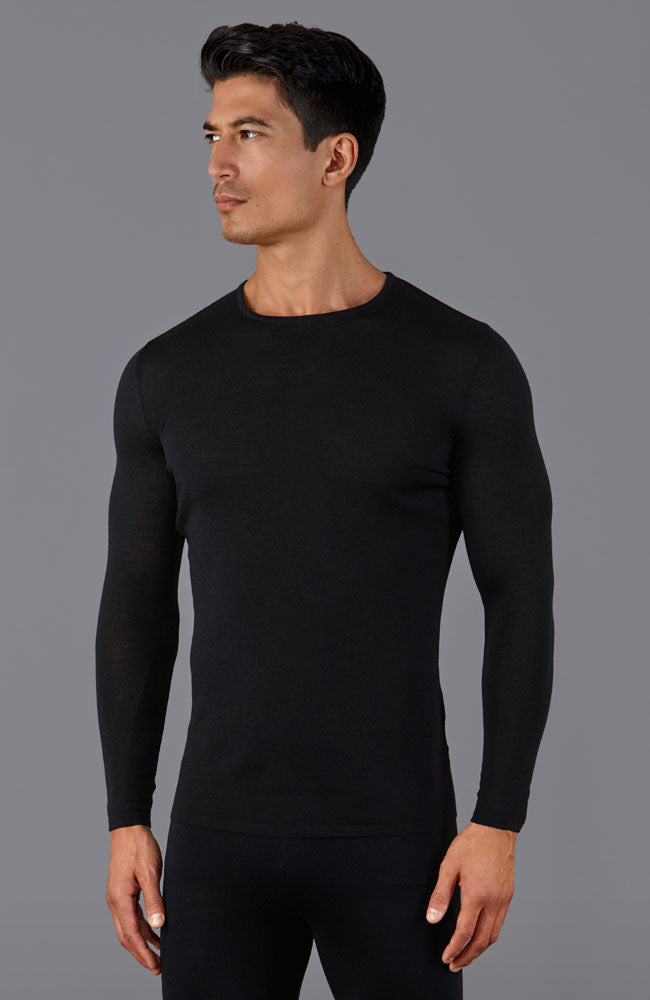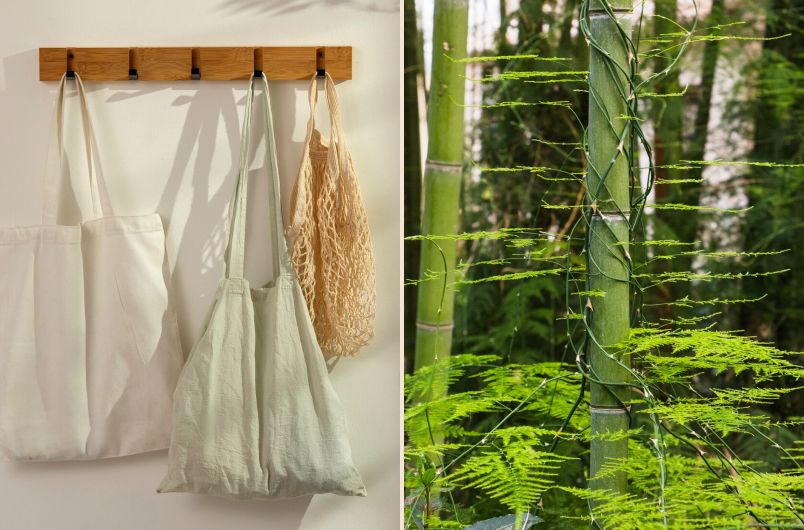Useful Bamboo Clothing Tips
Wiki Article
Why Are Baselayers Of Merino And Yak Wool Effective In Winter Sport Clothing Due To Their Fiber Properties As Well As Environmental Sustainability?
The natural fibers and environmental sustainability of Yak Merino Wool Base Layers makes them an excellent option for winter sports clothes.
Both wools, yak and merino, are natural fibers made from animals (yak and merino sheep, respectively). These renewable resources can be harvested sustainably and without harming animals. They are biodegradable materials which means they can be degraded naturally, without harming the environment.
Low Environmental Impact
Natural fibers have a generally less negative impact on the environment than synthetic materials. Wool harvesting and cultivation requires less chemical processing and is less dependent on non-renewable resource in comparison to synthetic fibers.
Energy Efficiency
The production of synthetic fibres like polyester or nylon takes more energy. Natural wool has a relatively low energy consumption, which can result in lower carbon dioxide emissions.
Minimized Microplastic Pollution
Wool fibers are less a contributor to microplastic contamination of water bodies than synthetic fibers. Synthetic fibers remove microplastics while being washed.
Durability and Recycling
Yak wool clothes are typically durable and last for a long time that can extend their lives. Additionally, wool fibers can be recycled or repurposed, further reducing the amount of waste and impact on the environment.
Sustainable Practices
Some wool producers adhere to ethical and sustainable practices. This includes ensuring animal welfare and responsible management of the land. It also ensures fair labor conditions and conditions of work for the workers who are involved in the production.
Environmental Certification-
Certifications such as the Responsible Wool Standard (RWS) or the Global Organic Textile Standard (GOTS) ensure ethical and environmentally conscious practices used in the production of wool and provide consumers with confidence regarding sustainability.
As a whole, yak Merino Wool base layers promote sustainability because they are made with natural fibers that have little environmental impact and also incorporate ethical and sustainable practices into the supply chain. The use of natural fibers for winter sports clothes like yak and merino is a way to help support sustainable consumption. View the recommended on the main page for merino wool base layer for site recommendations including merino wool base layer women's sale, 100 merino wool base layer, merino wool mid layer, smartwool 250, merino base layer cycling, smartwool base layer mens, smart wool baselayer, merino wool undershirt, hh lifa merino, merino wool long underwear and more.

What Are The Advantages Of Wearing Bamboo Clothes, In Terms Such As The Softness, Antibacterial Properties, The Ability To Renew And Durability?
Bamboo clothing comes with many benefits in terms of the softness, antibacterial properties, durability, and renewability. It is soft-
Bamboo fabric is known for its silky texture and luxurious feel. It is often compared to silk or other luxurious fabrics like cashmere. It is soft smooth and soft against your body.
Antibacterial Properties
Bamboo possesses natural antimicrobial qualities. Bamboo contains "bamboo-kun," which is a naturally present antimicrobial ingredient. This property prevents the growth on fabrics of odor-causing fungi or bacteria.
Durability-
The strength - Despite the softness of bamboo it's a sturdy material that's long-lasting. Bamboo clothing is able to withstand normal wear and tear, which makes it suitable for various kinds of activities without compromising the quality.
Renewability-
Rapid growth - Bamboo is an extremely renewable resource which grows rapidly without the use of pesticides or fertilizers. It is a renewable resource that is rapidly growing without the necessity of fertilizers or pesticides.
Sustainability-
Eco-Friendly Producing- Bamboo cultivation and processing have typically lower environmental impacts than the production of synthetic materials. Bamboo is sustainable due to its rapid growth rate, the fact that it requires less water and it can be grown in a wide range of climates.
Biodegradability-
Natural Decomposition: Bamboo clothing is able to naturally decay when it is time to end its lifespan. This helps reduce the accumulation of non-biodegradable garbage in landfills and minimizes environmental pollution.
Hypoallergenic Qualities
Less Irritation: Bamboo fabric tends to be less prone allergic reactions and skin irritation as compared to other synthetic materials. This makes it the perfect choice for sensitive skin.
Bamboo clothing comes with many attractive qualities, including softness, antibacterial properties, toughness, renewability, sustainability, and the comfort. These attributes provide a pleasant experience while wearing and are in line with green practices. See the recommended description for bamboo clothing for more tips including bamboo fabric clothing, bamboo hawaiian shirts, bamboo clothing underwear, bamboo tee shirts mens, carter's bamboo pajamas, cheapest bamboo pajamas, preemie bamboo pajamas, bamboo t shirts womens, freefly hoodie, bamboo twirl dress and more.

How Does Merino Layering And Bamboo Clothes Compare With Regular Wool?
Merino bamboo, Merino, and regular wool all have unique features.
Merino's soft fibers make it soft against your skin. It is less likely to cause irritation or itching than traditional wool.
Merino has exceptional moisture-wicking properties. It draws moisture away from your skin and allows it to evaporate leaving you feeling dry and comfortable.
Merino Wool is an excellent insulation that offers warmth even when it is wet. It regulates body temperatures by providing insulation and breathability to prevent overheating while exercising.
Odor Resistant - It blocks the development and spread of odor-causing bacteria So clothes stay fresher for a longer time.
Bamboo Clothing
Silky feel is often compared with cashmere or silk. It's soft and luxurious to wear.
Moisture-Wicking-Bamboo fabric has properties to wick moisture away that draw the moisture away from your skin, ensuring that the wearer stays dry during physical activity.
Temperature Regulation- Bamboo clothing has natural temperature-regulating abilities, offering warmth in winter and breathability to prevent overheating.
Sustainability - Bamboo is an extremely renewable resource that can grow rapidly, without the use of pesticides. It is biodegradable and has very low environmental impact.
Regular Wool
Texture: Wool can vary in texture, with some types being coarser and more prone to causing itching or discomfort.
Warmth- Regular wool offers great insulation and warmth, however, it can feel bulky or heavy.
Wool is a sponge for moisture and therefore less effective at wicking moisture than merino or bamboo fabrics. However, it retains warmth even in it is damp.
Merino offers softness and excellent moisture-wicking. It is also insensitive to smells. Bamboo clothing has a soft airy feel. Also, it regulates temperature and is environmentally friendly. Regular wool differs in texture. It might not be as soft, or have the same moisture-wicking capabilities as bamboo or merino but it does provide warmth. Each has distinct advantages, and caters to various tastes and needs when it comes to winter clothes. Take a look at the most popular my explanation for bamboo winter clothing for more info including smartwool long johns, long johns for skiing, wool base layer mens, wool base layer, wool thermal base layer, smartwool classic thermal merino quarter zip base layer top women's, best merino base layer, merino wool first lite, best layers for skiing, smartwool long sleeve shirt and more.
